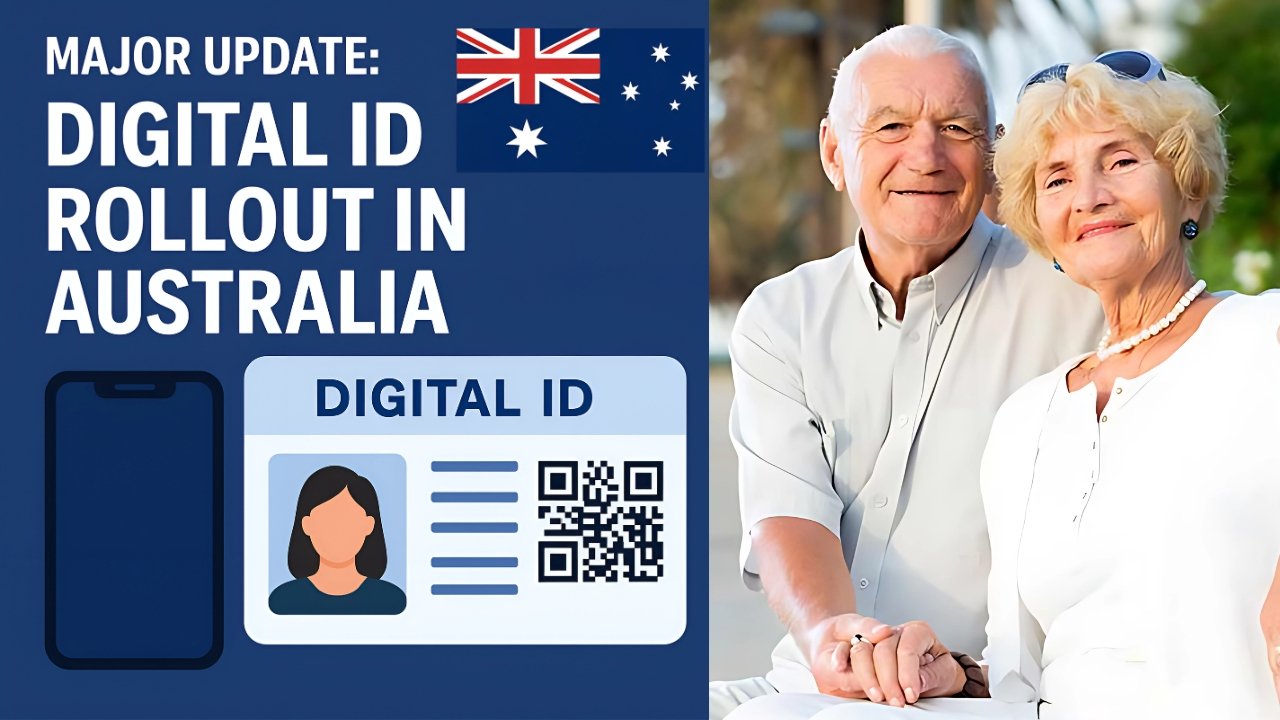
Across the nation, Australia is getting ready for a major shake-up in how everyone—especially seniors—proves who they are. The new Digital ID system launches in 2025 and is designed to make it easier for people to access hospitals, banks, and social services, while also cutting down on fraud. If you’re an older Australian, it’s natural to wonder how this new system will work, whether you will lose access to the support you rely on, and whether the technology is really safe.
Understanding the Digital ID System
The Digital ID is like a virtual identity card. Instead of carrying a driver’s license or passport, you will present a secure app on a smartphone, tablet, or even a computer to prove who you are. We’ve seen a small version of it in the myGovID app, which lets some seniors log in to Medicare or pensions. The broader rollout in 2025 will mean the same style of identification is acceptable at banks, phone companies, and private stores.
The system is built to protect you and your private details. Instead of showing a photo or a long number, it silently assures the bank or doctor that you are indeed you, without revealing your address or date of birth if you don’t have to show them. By cutting the paperwork and speeding up the phone queue, it will make life a little easier while guarding against identity theft at the same time.
Seniors Can Choose—No Pressure
The Australian government is clear: you do not have to use a Digital ID, no matter your age—seniors included. If you prefer your old ID, stick with it. Yes, the world is getting more digital, so some services are speeding up with the online way, but no door closes behind you just because you stay with paper. Think of it as a new lane on the highway that you can join later if you want—other lanes are still open.
That choice is comforting to many. The government says that pension forms, Medicare claims, and discount passes might go a little faster if the online system does the checking. Some seniors are happy to hear that; others feel worried about making the switch.
Honest Answers to Common Worries
Seniors have good questions, and the government is ready with answers. The most common worries are:
Next, the worry about identity protection is real, especially after recent news of hackers stealing personal data.
Some are also concerned that as things go online, they might be pushed to use fewer in-person services.
The government promises that each concern will be taken seriously. Paper records, phone calls, and face-to-face visits at places like Centrelink will remain options so that no one is left behind.
Kick-Off Schedule for the 2025 Digital ID
Starting in 2025, the Digital ID roll-out will be done in waves. Early in the year, the federal government will begin using the ID for its online services, letting people get used to it. By middle of the year, the big banks, insurers, and utility providers like power and water will join in. Toward the end of the year, other familiar private services—like work and retiree savings accounts, and insurance—will start letting customers prove who they are using the Digital ID.
Throughout this process, people will still be able to use the ID they have now, like driver’s licenses or passports. Having these two systems run side by side for a while is supposed to help everyone ease into the new digital way without rushing anybody.
Why Tech-Savvy Seniors Should Care
If you’re a senior who knows how to work a smartphone or tablet, the Digital ID is a pretty neat helper. Instead of making two or three trips to an office just to show the same ID, you can prove who you are in a few taps. This cuts down on the hassle of filling out and mailing stacks of paper forms.
For those of you juggling health cards, pensions, and other government services, the digital ID can line things up in one go. And because the system handles your ID for you instead of you handing around paper documents, it keeps your personal info safer. That’s a big win, especially since scams like identity theft go after seniors the hardest.
Keeping Your Trusted Choices
When Australia rolls out Digital ID, choice is the guiding rule. Seniors who like chatting with a real person or filling out paper forms can keep doing so with no extra cost. The new system is meant to make life easier, not harder, letting everyone choose the way to access government and private services that fits them best.
Questions You Might Have
Do I have to use Digital ID to get my pension?
Absolutely not. Digital ID might speed things up, but you can still use the ID you have now to receive your pension or any other government payments.
What if I don’t have a smartphone?
You can use the Digital ID on a computer at your library or a government service center. If you prefer to stick with paper, that’s still an option.
Will my personal information stay safe with Digital ID?
Yes! The system uses strong encryption to keep your data secure. You choose what to share, and your identity is confirmed without the system disclosing extra information.
Major Update: New Seniors Health Card Rules Australia – Eligibility in August 2025